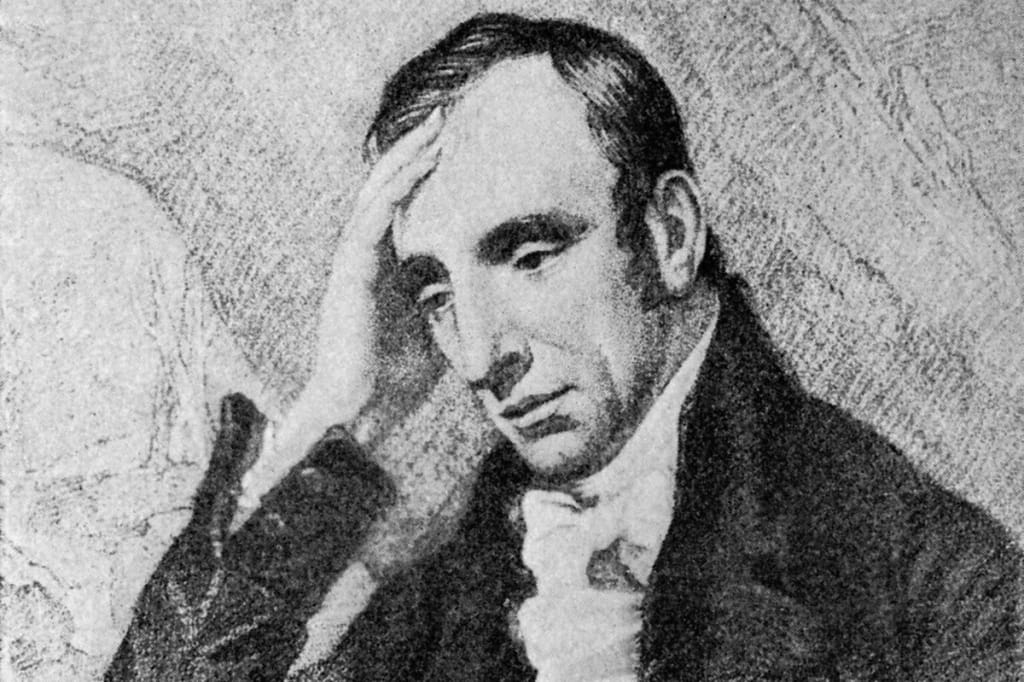An Introduction to William Wordsworth
Wordsworth as the Everyman Poet

Most commonly known as one of the greatest poets of the English Language, William Wordsworth was also a philosophical man, writing famously in his preface to the co-authored work The Lyrical Ballads that “our elementary feelings coexist in a state of greater simplicity.” In order to get the word across that he was attempting to write poetry for every type of person to read and understand, Wordsworth penned most of his poetry in normal standard English, as opposed to the more flowery language written by poets like Shelley, Byron, and before him, Pope. Wordsworth actually explained the difference between his own writing and the writing of more artistic and elaborate poets as:
“…repeated experience and regular feelings is a more permanent and far more philosophical language than that which is frequently sub-situated for it by poets who think that they are conferring honour upon themselves and their art, in proportion as they separate themselves from the sympathies of men and indulge in arbitrary and capricious habits of expression, in order to furnish food for fickle tastes and fickle appetites of their own creation…”
In this, Wordsworth basically explains the reason as to why writing in regular English, and sympathising with the emotions of the majority is far better than doing yourself credit by writing in a language only some can understand, and only look forward to the fact you are furnishing a craft, which has been around since before you were born. Wordsworth retaliates against form, and curses indulgence poetry, stating that the raw emotion should be the first and foremost point of the poem–everything else can wait. All in all, Wordsworth is attacking the poetry of the early Enlightenment for its self-indulging and self-serving nature.
But, apart from attacking the poetry before him, Wordsworth also seeks to tell us what he is doing to add to the poetic craft. He seeks to let us in and analyse his poetry as not only autobiography, but also as a product of his time. With the changing world, Wordsworth seeks to make his poetry more inclusive of all people, to connect with more than just the higher classes, and to make his poetry more truthful and accessible to all. He states:
“I wished to draw attention to the truth that the human imagination is sufficient to produce such changes in our physical nature as might also appear miraculous. The truth is an important one; the fact is a valuable illustration of it. And I have the satisfaction of knowing that it has been communicated to many hundreds of people who would never have heard of it, had it not been narrated as a Ballad…”
This is not only drawn as Wordsworth writing many of his poems in first person, but also through his autobiographical epic poem "The Prelude," in which there are specific verses that pay homage to the idea of human imagination. From Book 6, Lines 525 to 539 it states:
“Imagination!—lifting up itself Before the eye and progress of my song Like an unfathered vapour, here that power, In all the might of its endowments, came Athwart me. I was lost as in a cloud, Halted without a struggle to break through, And now, recovering, to my soul I say ‘I recognise thy glory:’ in such strength Of usurpation, in such visitings Of awful promise, when the light of sense Goes out in flashes that have shewn to us The invisible world, doth greatness make abode, There harbours whether we be young or old,Our destiny, our nature, and our home, Is with infinitude—and only there…”
In this, Wordsworth explains the nature of imagination as one of the senses humans have. He also links the way in which human imagination works to the soul and the overwhelming feeling of the sublime. Through the way in which he states that the “glory” is “recovering” to his soul, we can clearly see that there is an overwhelming feeling of elevation here–the mind and soul are being lifted metaphorically speaking, above the body, and imagination seems to be the propellant of all of it, since it is the sense that is mentioned first, foremost, and is isolated–above all others. Wordsworth himself, in his Preface to the Lyrical Ballads calls this overwhelming emotion a “spontaneous overflow of powerful feelings…” and though this may be true in order to link the sublime emotion to the human imagination, it is Geoffrey Hartman, a key analyst of Wordsworth’s poetry, who states the real link between the two as Wordsworth’s “attempt to bind consciousness to nature…” (Roberts, Wordsworth’s Apocalypse, 2006. p.4). The consciousness being the the human imagination, and the “nature” being the literal meaning of the surrounding, outside world. Thus providing us with enough information to state that one of the great philosophies of William Wordsworth was that he wanted to make that connection between human imagination, the majority population, and the natural world–and effectively creating Romantic Vagrant Poetry.
Wordsworth has so often been accused of being anti-intellectual as well–with others providing clues and hints from his shorter poems that Wordsworth believed in human experience over the providing of books and letters. Written by his own nephew in 1851, only a year following his uncle’s death–Christopher Wordsworth writes:
“How are the young to be rescued from this perilous condition? [. . .] It must be, by the warning voice of some contemporary teacher, who has won their respect by his intellectual powers, and has gained their affections by his ardent benevolence, and who will warn them against the delusions of the age, and instruct them to suspect, distrust, and analyse its opinions.”
And so comes the accusers that because this is the work of his family member, who are you to question the work of the craftsman? Well, we can question it, but we cannot deny the fact that Wordsworth was against Enlightenment thinking. From the book The Prelude we can clearly see Wordsworth's dislike for the values of the French Revolution–previously a supporter, he returned to England without his French Wife. But Wordsworth did not support the standard of the educational classes, hinting at the fact that human experience was far more important than this. We need only look as far as J. Andrew Hubbell’s essay, “A Question of Nature: Byron and Wordsworth” in order to understand the way in which Wordsworth and Coleridge presented themselves as speakers of the anti-intellectual, and the voice of common men:
“Wordsworth and Coleridge are more than just itinerant observers of scenic beauty; they are dwellers in the landscape of the Lake District, and the poetry that they composed in that region often adopts the persona of a speaker whose voice is inflected by the local and personal history of the place he inhabits.”
This alone can tell the audience about the personal and yet, more outreaching way in which Wordsworth and Coleridge wrote as poetic speakers. The anti-intellectual follows on from the idea of socialism and doing things to make the majority happier, rather than to make the top five percent happier. Wordsworth may not have been anti-intellectual, since his poems are so well thought out and have (as he calls it in the Preface to the Lyrical Ballads) “more impressive meter…” but he is definitely anti-extravagancy. I can imagine that Byron and Wordsworth are possibly two very different philosophical thinkers, personally though I sway towards Byron more. But, in Wordsworth’s day, he was definitely more of the “people’s poet,” and valued the idea of the experience of nature. He therefore, connected with the people who worked on the land, as they were given poetry that made their own everyday experiences more special and less meaningless. They were given poetry that valued their views of the land, and valued their work as shepherds or farmers. Wordsworth, as we’ve said, basically created Romantic Vagrant Poetry, and so felt he had the responsibility to share the importance of the land workers with the people who not only couldn’t experience that, but also experienced that every day, and felt nothing of it. He added emotion to the everyday life of the agricultural sector, and filled it with sublime emotions elevated above any kind of comprehensible human experience. I believe Wordsworth’s intentions for poetry are best explained though through the final lines of his poem “The Tables Turned”:
“Enough of Science and of Art, Close up these barren leaves;Come forth, and bring with you a heartThat watches and receives.”
About the Creator
Annie Kapur
200K+ Reads on Vocal.
English Lecturer
🎓Literature & Writing (B.A)
🎓Film & Writing (M.A)
🎓Secondary English Education (PgDipEd) (QTS)
📍Birmingham, UK






Comments
There are no comments for this story
Be the first to respond and start the conversation.